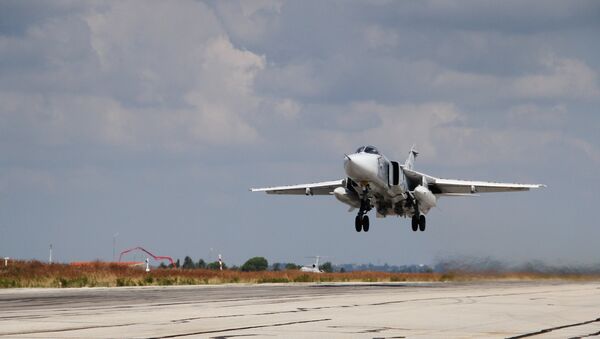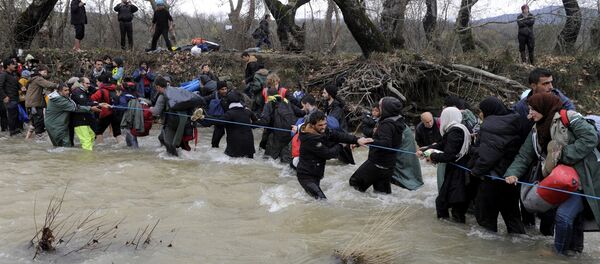“We all remember that the Russian pullout was preceded by the start of a political settlement process and a ceasefire… It is against this particular background that I would like to talk about the Russian military withdrawal from Syria,” Konstantin Kostin noted.
Dmitry Badovsky, the head of the Institute of Socio-Political Studies in Moscow, said that Russian intervention in the Syrian conflict reversed the course of the war.
“I see Russia’s aerial campaign of the past five months in Syria as the ultimate example of the use of the so-called ‘smart force,’" he said, adding that it had come after months of Western inactivity and lip service paid to the need to root out the scourge of terrorism.
To this Konstantin Kostin added that Russia had helped kick-start the process of a political settlement in Syria.
“Speaking of regional security, we now have everything we need to move towards a lasting peace in Syria, especially now that they are going to hold elections there about a month from now,” he said.
When asked about the way the decision to withdraw the Russian Air Force units from Syria could reflect on Russia’s relations with the West, Konstantin Kostin said that it spoke volumes about the open-hearted nature of Moscow’s policy.
“Russia has always said that our ultimate goal is to fight terrorists and ensure a political solution to the Syrian crisis,” Kostin noted, adding that the order to bring the Russian military contingent back home coincided with the start of the much-awaited process of a political settlement of the five-year-old civil war in Syria.
On March 14 President Vladimir Putin announced his decision to start withdrawing Russia’s main forces in Syria, saying that the military campaign had largely achieved its objectives.



